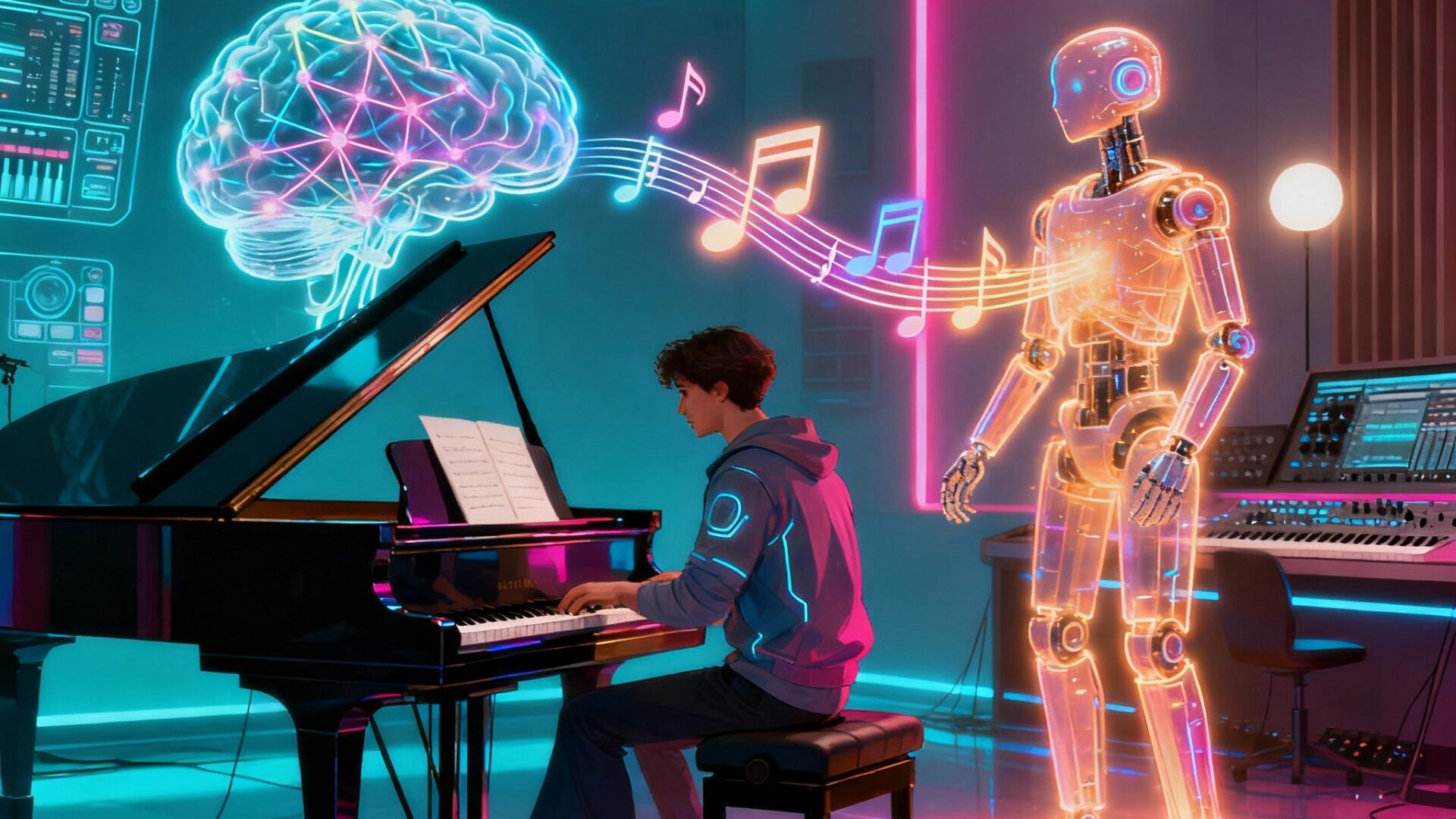The Rising Buzz Around OpenAI’s AI Music Model
OpenAI is reportedly developing a brand-new generative AI music tool that could transform how we write music. According to reports, this model will take text or audio prompts and produce original compositions — a move that’s reignited debate on whether AI could make human composers… well, irrelevant.
But while this sounds futuristic, the underlying technology is grounded in earlier systems like MuseNet and Jukebox, which already hint at both the promise and the limits of AI-generated music.
A Brief History: OpenAI’s Musical Journey So Far
MuseNet: Style-Blending at Its Core
-
MuseNet is a transformer-based model (similar to GPT-2) trained on hundreds of thousands of MIDI files.
-
It can generate multi-instrument, four-minute compositions across styles — from Mozart to pop — and even blend genres in innovative ways.
-
The model gives users control via composer tokens (like “Bach” or “Beatles”) and instrumentation tokens (piano, strings, etc.).
-
Yet, it has limitations: MuseNet doesn’t always stick strictly to the instruments requested, and oddly paired styles can sound unnatural.
Jukebox: Raw Audio Generation
-
Jukebox is OpenAI’s follow-up that works on raw audio, not just MIDI.
-
It compresses audio using a VQ-VAE (vector-quantized variational autoencoder) and uses an autoregressive transformer to generate music conditioned on genre, artist, and even lyrics.
-
The generated songs can include singing, but fidelity and realism remain a challenge — Jukebox was always more of a research prototype than a polished music studio.
What’s New: OpenAI’s Next-Gen Music AI
The current buzz suggests OpenAI’s next music model will be significantly more powerful and flexible:
-
It will support both text and audio prompts, enabling users to describe a mood (“moody piano ballad”) or feed in a melody to expand.
-
There’s talk of a collaboration with Juilliard School students, who are annotating musical scores to help the AI understand harmony, score structure, and emotional nuance.
-
Potential applications: creating custom background scores, generating guitar accompaniment for vocals, or composing for video content.
Will Human Composers Become Obsolete? The Debate Heats Up
Arguments For AI Replacing Composers
-
Speed & Efficiency: AI could rapidly produce professional-sounding compositions for creators who lack musical training.
-
Accessibility: Small studios, indie creators, or filmmakers could generate music on demand instead of hiring a composer.
-
Cost-effectiveness: AI-driven music could potentially reduce production costs for background scores or short compositions.
Arguments Against Total Replacement
-
Emotional Depth: Critics argue AI lacks the subtle human feelings and imperfections that define art.
-
Ownership & Copyright Woes: Legal frameworks still struggle with AI-generated content. Who owns the rights — the user, the developer, or no one?
-
Artistic Collaboration: Many see AI not as a replacement but as a co-composer — a tool that augments human creativity rather than obliterates it.
The Ethical & Legal Tightrope
-
There are serious questions about copyright: since much AI training data comes from human-written music, who holds the rights to the resultant compositions?
-
The collaboration model (like with Juilliard) is promising, but it also raises concerns: will this favor classically trained musicians, or value human input in a meaningful way — or just use it to train the tool?
-
Even musically, there’s a risk of homogenization: if AI becomes a dominant tool, will more music start to sound “machine-like” rather than individual and expressive?
Why This AI Music Revolution Matters
-
For creators, this could be a game-changer, especially for those who need quick, custom compositions but don’t have the budget or access to composers.
-
For composers and musicians, the rise of such tools could push them into new collaborative roles — guiding AI, refining outputs, or using it to ideate fast.
-
In education, students and novice musicians could learn structure, harmony, and style by interacting with a model that composes — a new kind of teacher-aide.
Final Thoughts
OpenAI’s new AI music model represents a bold step into the fusion of technology and creativity. While it may never fully replace human composers — given emotional, legal, and artistic gaps — it certainly promises to change how music is made, who makes it, and for whom. Rather than rendering composers obsolete, this could mark a turning point: a future where human and machine co-create, pushing the boundaries of what music can be.









